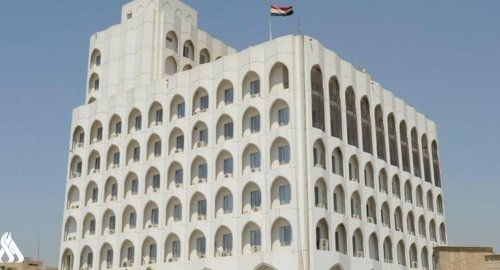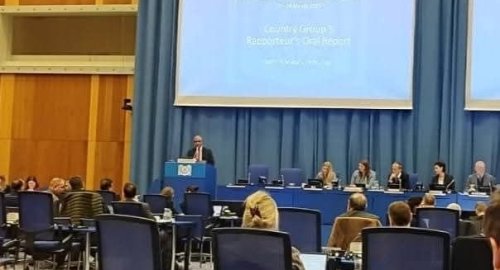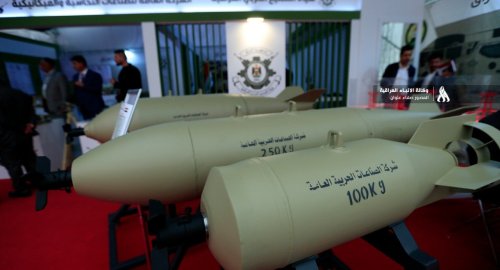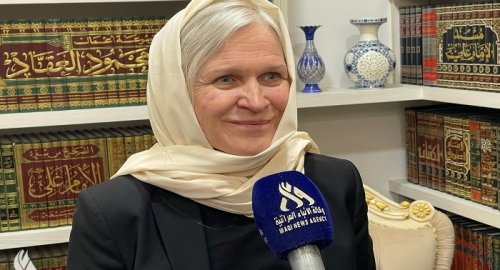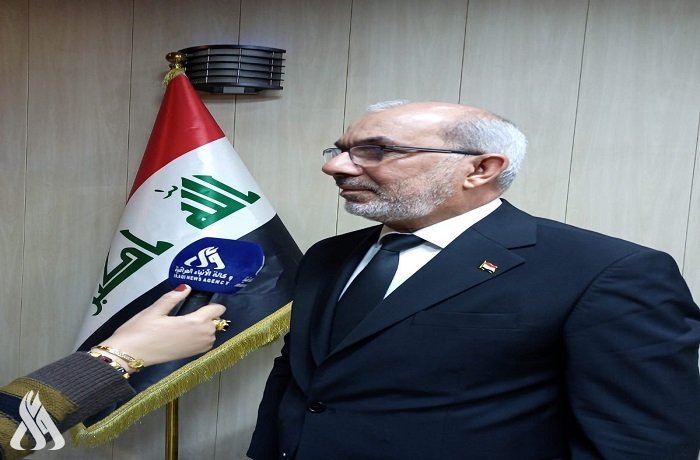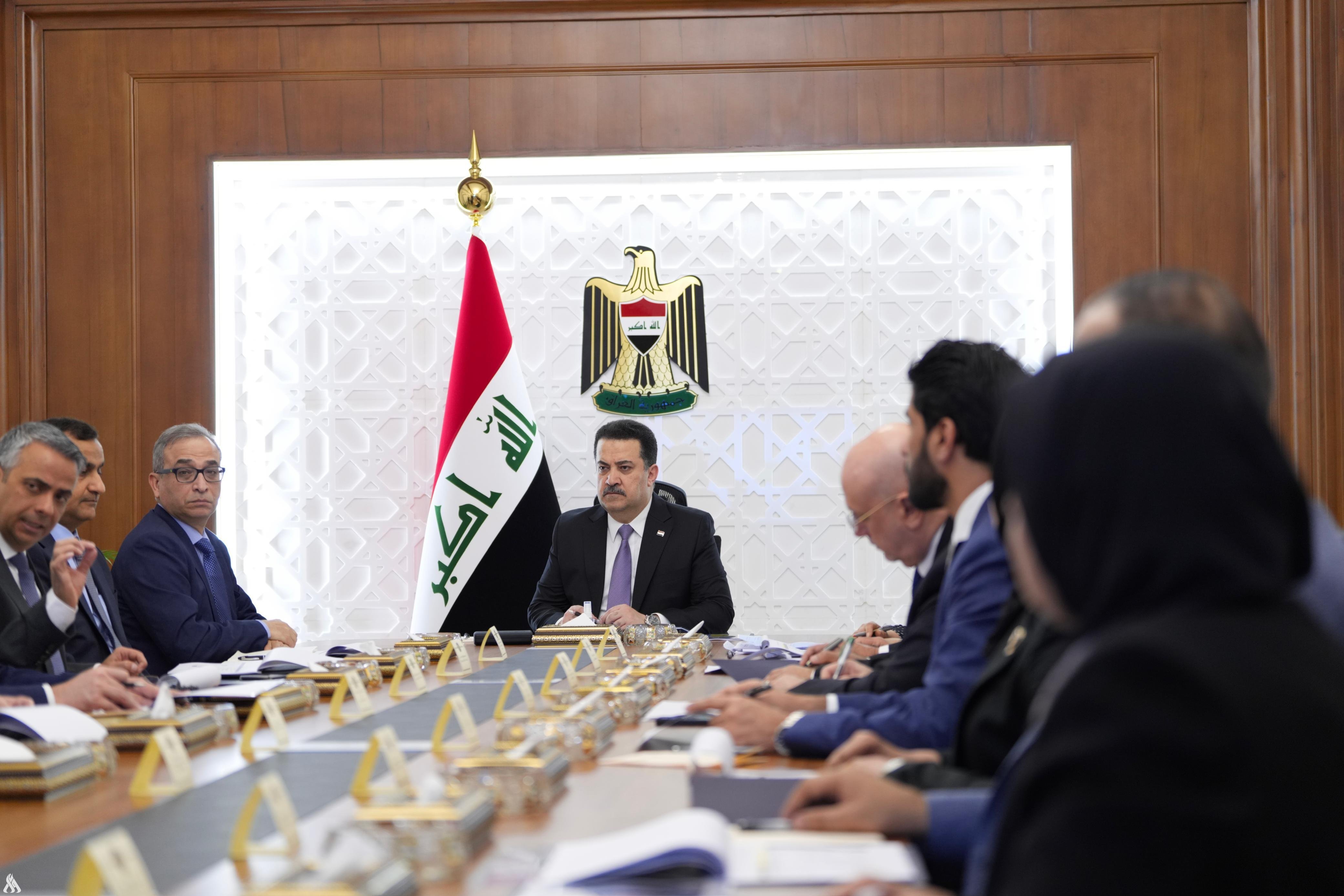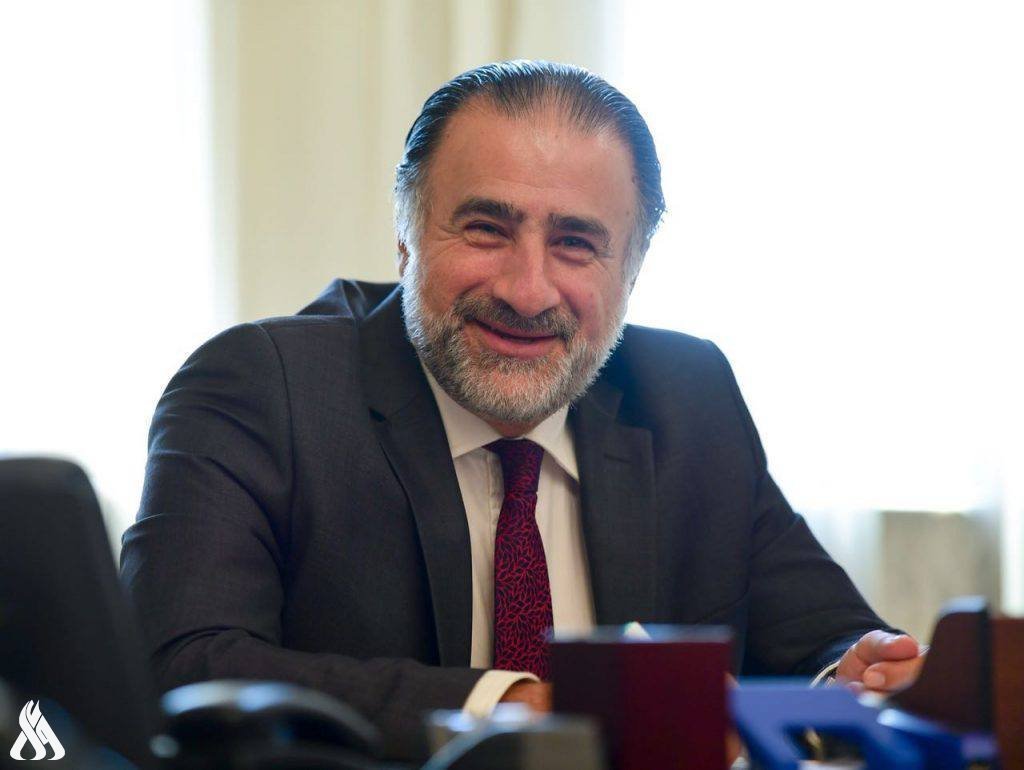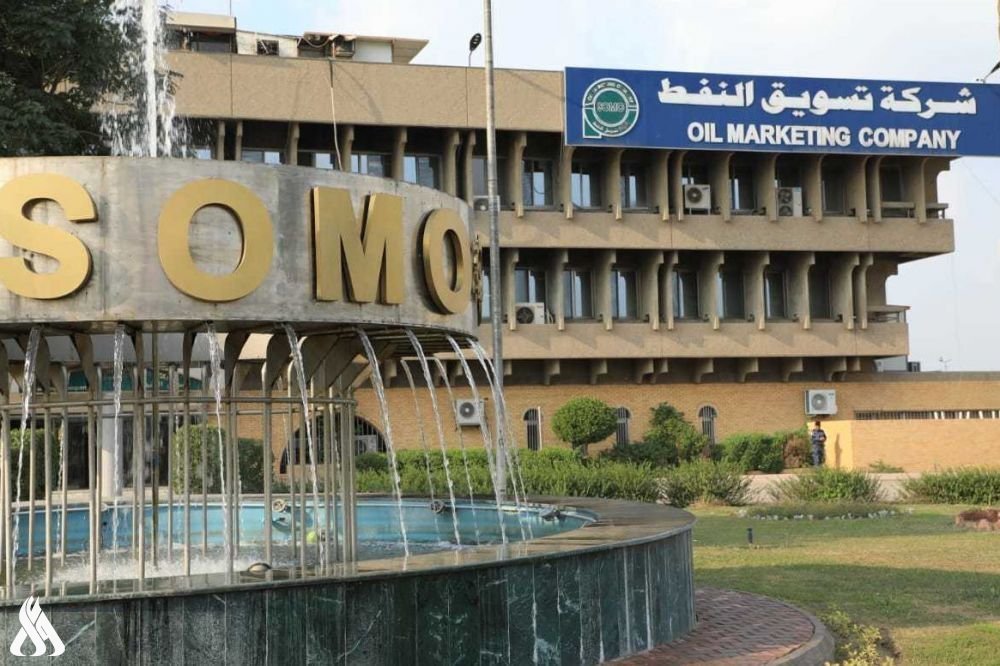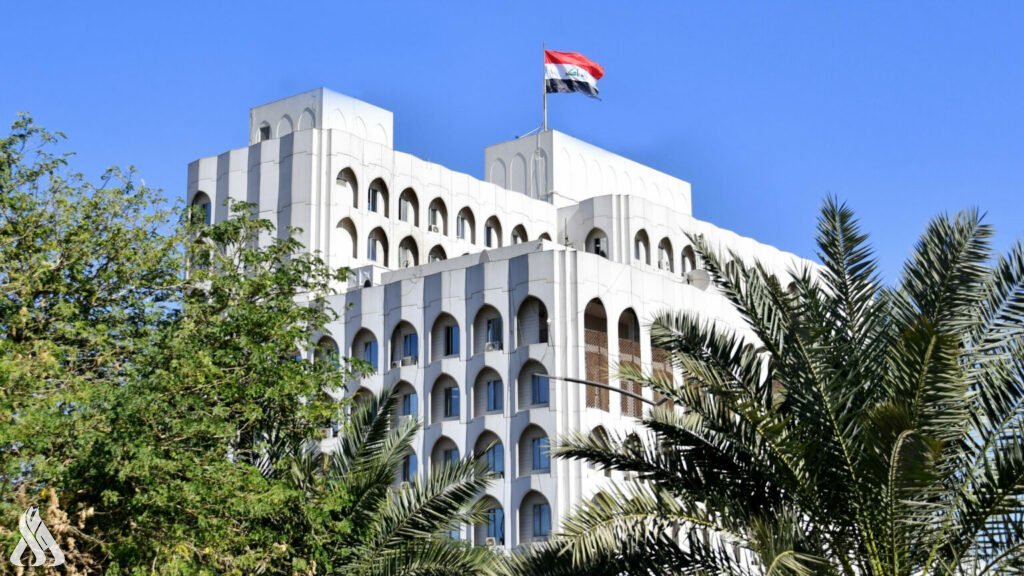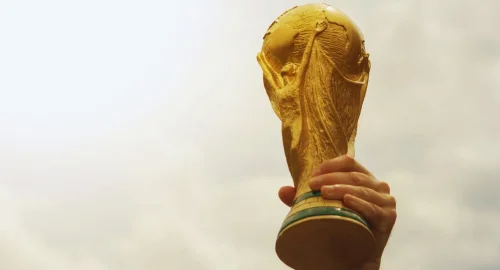
Sport's oldest competition: The World Cup

- 20-03-2025, 17:25
Baghdad-INA
Report: Harith Al-Ibadi
There is no doubt that the FIFA World Cup is one of the most significant global sporting events, with national teams from all over the world competing and attracting significant public interest. In this article, we will take a brief look at the history and development of this prestigious tournament over time and how it has grown:
Who came up with the idea of the World Cup?
In the late 1950s, a Frenchman named Jules Rimet, former president of the FIFA, was there to instigate the idea to hold the World Cup, which was a long time coming before it became a reality.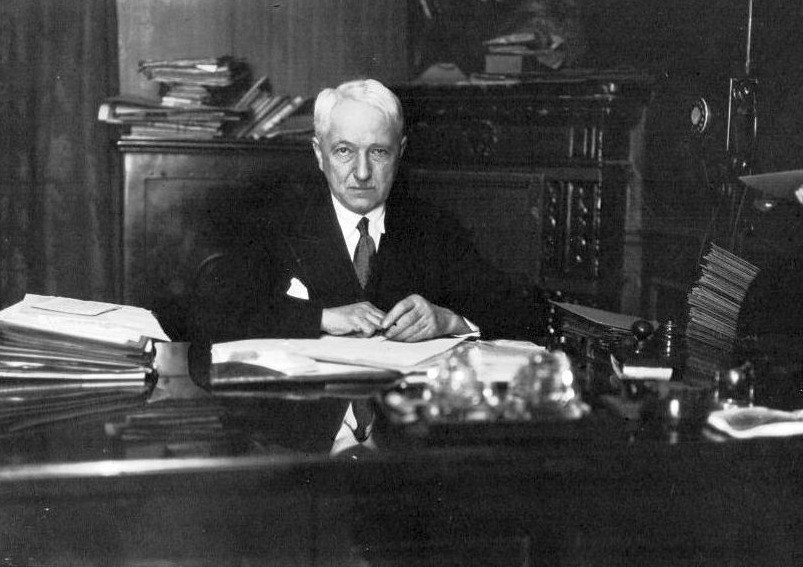
The first World Cup was the Jules Rimet Cup, named after the then-president of FIFA, who came up with the idea of holding the World Cup. Jules Rimet was a French lawyer, but his involvement in sports began in 1897 with the establishment of a club called Red Star. Founded on universal humanitarian principles, the club is the fourth oldest in French history. The Jules Rimet Club did not discriminate between members based on social class and supported the sport of football.
Humble Beginnings: The Launch of the First World Cup
Before the World Cup, there were other prestigious football competitions, but the football tournament held at the Summer Olympics was considered the most prestigious and important. However, in the 1920s, football began to become professional, creating a conflict with the amateur nature of the Olympic Games.
As a result, FIFA began developing plans to create its own global tournament. Plans for the first World Cup were officially announced on May 26, 1928, paving the way for the birth of the most prestigious football tournament in history.
In 1930, FIFA organized the first World Cup in Uruguay, with 13 teams from three different continents participating. These included Argentina, Bolivia, Brazil, Belgium, Chile, Mexico, and France, in addition to Paraguay, Romania, the United States, Peru, Uruguay, and Yugoslavia. Since then, the tournament has been held every four years, with the exception of World War II.
Technical Evolution: From Television Broadcasting to Video Assistant Referee Technology
The tournament has witnessed significant technological changes, starting with the television broadcast of matches in the 1950s, which contributed to its increased popularity, and ending with the introduction of Video Assistant Referee (VAR) technology in recent years, reflecting the tournament's commitment to keeping pace with technological developments to ensure fair matches.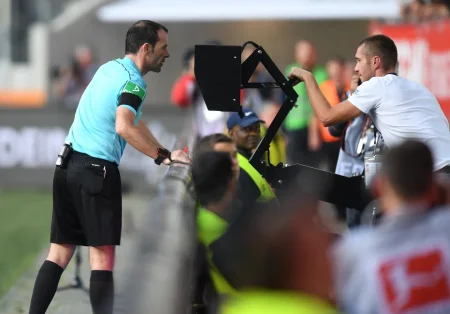
Penalty Kicks: The Evolution of a Fateful Decision
Before 1970, tied matches in the World Cup were decided either by replay or by a toss. With the official adoption of the penalty shootout system by the International Football Association Board (IFAB) in 1970, it took 12 years for it to be used for the first time in the historic match between West Germany and France in 1982. The system gradually evolved, reaching a significant turning point in the 1990 World Cup, when teams began to develop pre-match plans and determine the goal scorers.
All-Time Top Scorer in World Cup Qualifiers
Guatemalan Carlos Ruiz leads the all-time list of World Cup qualifying scorers with 39 goals, scored in 47 qualifying matches. Ruiz represented Guatemala from 1998 to 2016, and made 133 international appearances for his country, scoring 68 goals in all competitions. The following is a list of the top scorers in the World Cup:
1- Carlos Ruiz (Guatemala): 39 goals
2- Cristiano Ronaldo (Portugal): 36 goals
3- Ali Daei (Iran): 35 goals
4- Lionel Messi (Argentina): 34 goals
5- Robert Lewandowski (Poland): 30 goals
Glory and Challenge: The Journey of Champions Through History
The story of the World Cup began with Uruguay's victory in the first edition, followed by Italy with two consecutive wins. After the tournament was interrupted due to World War II, Uruguay won again, followed by Brazil, who emerged as a superpower, winning three titles in four tournaments with the emergence of Pelé. West Germany and England achieved notable successes, while Argentina, led by Maradona, and the Netherlands excelled with their revolutionary style. Italy concluded the 1980s with their victory in 1982.
The 1990s saw West Germany, then Brazil, and finally France win their first title. The new millennium was marked by a variety of winners, starting with From Brazil, then Italy, Spain, and Germany, France returned to the title in 2018. Finally, in 2022, Argentina, led by Messi, defeated France in a thrilling final, with Mbappé emerging as the tournament's top scorer.
Youngest Coach in World Cup History
The youngest coach in World Cup history is Argentine Juan José Tramutola, who took over the Argentina national team in the 1930 World Cup at the age of 27 years and 267 days.
Tramutola led Argentina in the first World Cup, and his record still stands today. Despite his young age, he led the team to the final, where they lost to Uruguay 4-2.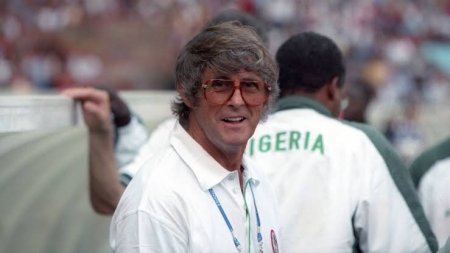
The 10 Fastest Goals in World Cup History
The beauty and joy of football are captured in scoring goals. The 2018 World Cup in Russia witnessed many wonderful and skillful goals. Denmark's Mathias Jørgensen's goal against Croatia joins the list of fastest goals in World Cup history, ranking 11th.
In this report, we list the 10 fastest goals in World Cup history so far:
Hakan Sukur (2002): 11 seconds
Turkish Hakan Sukur scored the fastest goal in World Cup history when he opened the scoring after 11 seconds of the third-place match against host nation South Korea in the 2002 World Cup.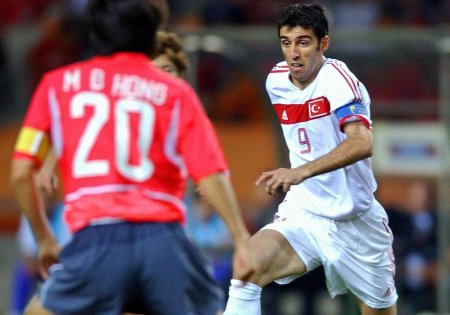
Vaclav Mask (1962): 16 seconds
Mask scored Czechoslovakia's only goal against Mexico in 1962 after just 16 seconds of the match.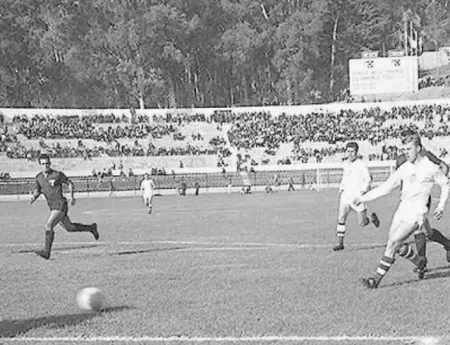
Ernst Lehner (1934): 25 seconds
German player Ernst Lehner scored against Austria just 25 seconds into the Germany-Austria match in the 1934 World Cup.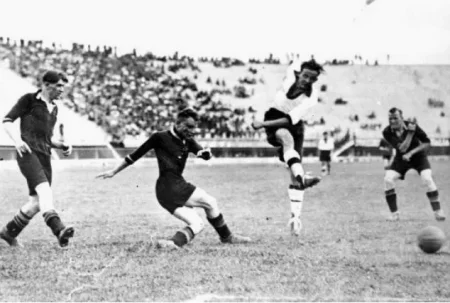
Bryan Robson (1982): 27 seconds
England's Bryan Robson scored 27 seconds into the England-France match in the group stage of the 1982 World Cup in Spain.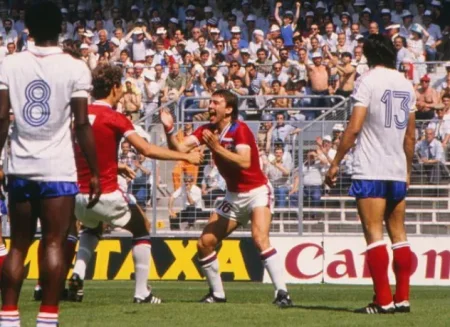
Clint Dempsey (2014): 29 seconds
The American player scored 29 seconds into the USA-Ghana match in the group stage of the 2014 World Cup in Brazil.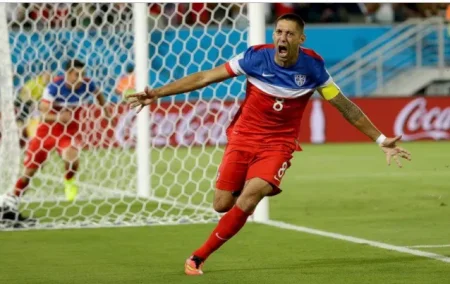
Emilie Venanty (1938): 35 seconds
The French player scored 35 seconds into the France-Belgium match in the group stage of the 1938 World Cup, hosted by France.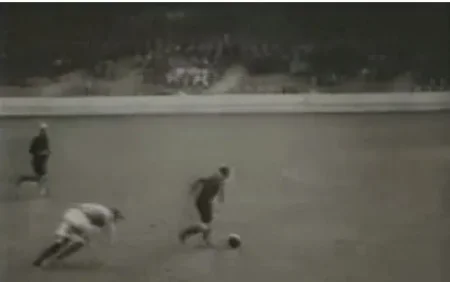
Arne Nyberg (1938): 35 seconds
Sweden's Arne Nyberg scored 35 seconds into the match hosted by France, before his country lost 5-1.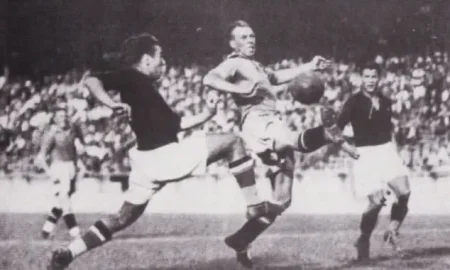
Bernard Lacombe (1978): 37 seconds
Bernard Lacombe scored for France against Italy in the 1978 World Cup after just 37 seconds.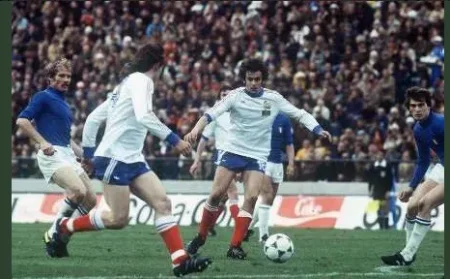
Florian Albert (1962): 50 seconds
Albert scored for France against Bulgaria after 50 seconds in the group stage of the 1962 World Cup.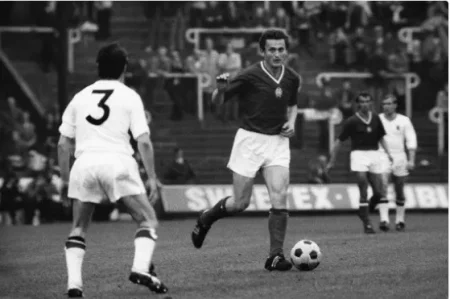
Adelbert Dessau (1930): 50 seconds
The Romanian star scored against Peru after just 50 seconds in the 1934 World Cup match.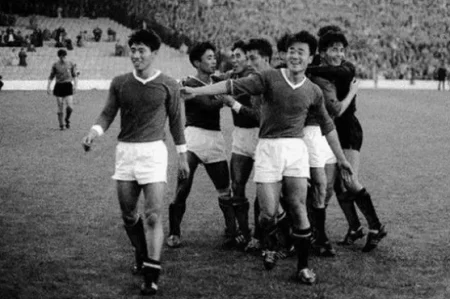
Mathias Jørgensen (2018): 57 seconds
Mathias Jørgensen's goal against Marotheia, which came after 57 seconds, was the 11th fastest goal in a World Cup.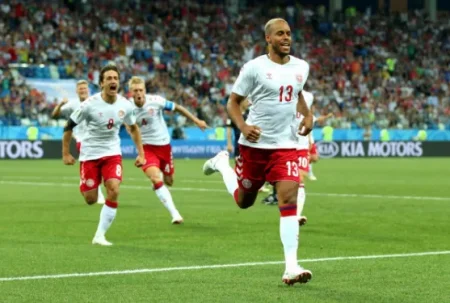
The 2030 World Cup will be held in Morocco, Portugal, and Spain, and the 2034 World Cup will be held in Saudi Arabia.
FIFA has announced that Morocco, Spain, and Portugal will host the 2030 World Cup, while Saudi Arabia will host the 2034 World Cup.
The bids were confirmed by acclamation during an extraordinary virtual FIFA Congress, as there were no competing bids. The 2030 World Cup will begin with three matches in Uruguay, Argentina, and Paraguay as part of the centenary celebrations of the first World Cup in Uruguay in 1930. Morocco, Portugal, and Spain will host all other matches in that edition.
Morocco became the second African country to host the World Cup, after South Africa, which hosted the tournament in 2010.
In contrast, Saudi Arabia was awarded the 2034 World Cup, making it the third World Cup to be held in the Arab world during the last four editions of the world's most important and prestigious national team competition. This follows Morocco and Qatar, which hosted the 2022 World Cup with resounding success. It will also be the second World Cup to be held in the Gulf region. The next World Cup will be held in 2026 in the United States, Mexico, and Canada, with 48 teams participating for the first time in the tournament's history.
In conclusion, the FIFA World Cup remains a unique global event that transcends the boundaries of sport. It brings together diverse peoples and cultures under one umbrella, creating unforgettable moments of excitement, joy, and sadness, while inspiring new generations and fueling their dreams.



